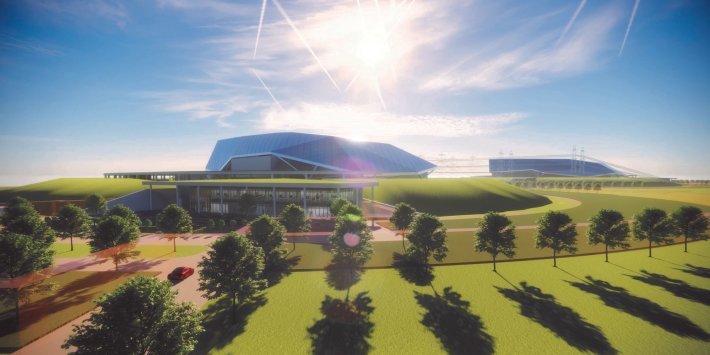Why net zero nuclear power is needed to ensure a smooth path by 2050

In order for nuclear energy to play its full role as the UK strives for net zero, we need to advance the latest technology, including small modular reactors (SMRs), according to the Nuclear Advanced Manufacturing Research Center.
Without nuclear power, there is a risk that the UK’s net zero ambitions will get out of reach. The time to act is now.
There is one major stumbling block in the UK’s path to net zero emissions by 2050 – we will lose almost all of our current sources of reliable low carbon electricity over the next few years.
The UK’s current nuclear fleet provides about two-fifths of its low-carbon generation, but more than half of that capacity will go offline by 2024 and the rest by the mid-30s.
The shutdown of aging reactors like Dungeness B is far from unexpected, but it is a severe blow to our decarbonization efforts. We’ve talked endlessly about the need for new nuclear power for the past 15 years, but only one project – Hinkley Point C in Somerset – has actually started construction. We cannot delay any further.
Renewable energies will play a big role in the future energy mix, but we still need a large amount of solid energy to balance the variability of wind and sun – and nuclear power is still the only proven low-carbon way to do this.
Without new nuclear power, we will face rising CO2 emissions and energy costs as well as the loss of skilled jobs in some of the most economically disadvantaged parts of the country. That’s why I’ve worked closely with MPs and industry partners to understand what needs to happen in the current parliament for nuclear energy to play its full role in the future energy mix.
The Roadmap to 2024, published last month by the APPG on Nuclear Energy, contains 10 key measures such as legislation for a new funding model to lower the barriers to infrastructure investments of this magnitude. That should enable a new building at Sizewell C in Suffolk and at least one additional gigawatt project elsewhere.
Without the cooperation of nuclear energy with renewable energies and a multitude of other technologies, we have almost no chance of achieving net zero emissions
Investing in new nuclear energy offers greater economic benefits than any other energy technology – and with around 90 percent of UK nuclear jobs outside of London and the South East, it can be a powerful tool to balance regions. In order for nuclear power to play its full role in the low-carbon economy, we also need to bring new types of reactors to market – including small modular reactors (SMRs) that are based on current reactor technology but are much more flexible and affordable.
At Nuclear AMRC, we are working with Rolls-Royce and other partners through the UK SMR consortium, which aims to have its first compact power plant operational around 2030. Up to 80 percent of the component’s value is found in factories in the Midlands and Northern England, which will create about 6,000 jobs by 2025 and 40,000 jobs by 2035.
And net zero emissions isn’t just about decarbonizing power generation. Thanks to the unique combination of electricity and heat in nuclear energy, new reactors can also drive industrial decarbonization, hydrogen production and district heating.
Without the cooperation of nuclear energy with renewable energies and a multitude of other technologies, we have almost no chance of achieving net zero emissions. But we need to act now to ensure a smooth journey through 2050.
Andrew Storer is CEO of the Nuclear Advanced Manufacturing Research Center, which is part of the High Value Manufacturing Catapult. is
PoliticsHome Newsletter
Find out what MPs and colleagues are talking about. Sign up for the House’s morning email for the latest intelligence and feedback from MPs, policy makers and organizations.


Comments are closed.